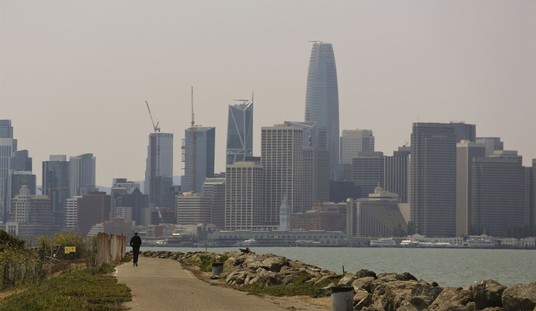It is not one or two but several issues which are giving likely midterm voters unease. According to a newly released Politico poll of likely voters in “competitive U.S. House and Senate races,” the electorate is consumed with anxiety about the current state of affairs. A perfect storm of economic, national security, and health concerns have led voters to doubt that America’s elected officials can competently handle them all. While voters are not overly pessimistic about the future, they are overwhelmingly gloomy about the present.
This is not to say that there is no good news for Democrats in this latest Politico poll. With “leaners” included, Democrats (including Kansas Senate “independent” candidate Greg Orman) enjoy the backing of a plurality of voters who say they plan to vote in November. On the generic ballot question, Democrats lead Republicans with 44 to 41 percent. While Republicans traditionally trail Democrats in this question, few polls at this stage of the 2010 midterms showed anything other than a significant Republican lead.
Democrats can also take some solace in the fact that their party’s image is not as badly tainted as is the Republican “brand,” but that should be cold comfort for most Democrats. While 70 percent of respondents had a “somewhat” or “strongly” negative view of the GOP, 61 percent said the same of Democrats.
That is, however, where the good news for the president’s party ends. On the issues, the public is deeply concerned about the state of affairs and the party in control of government is unlikely to escape their rebuke.
Asked to select one issue of critical importance to them, the general economy, national security (wars abroad, defense cuts), and the issue of health care were of most importance to voters. On those issues, Democrats have reason to fear a backlash from voters.
The Affordable Care Act remains deeply unpopular. Only 17 percent in this poll said that Obamacare should not be reformed. 41 percent backed keeping the law but with modifications while another 41 percent said it should be repealed in its entirety. It stands to reason that one of these blocs of voters is going to be more motivated to head to the polls to register their dissatisfaction with the party in power; a plurality – 41 percent – said they expected their health care to get “worse” as the ACA continues along on its lumbering pace of implementation. A significant majority — 57 percent to 34 percent – said they expect the cost for this suboptimal health care to increase.
On terrorism, which a significant percentage of the voting public ranked as their most important issue, there is more voter anxiety. 84 percent said they consider the threat to the homeland posed by the Islamic State to be a significant one. Asked if they were more concerned about a “drawn-out” war or an attack on the United States, more voters said a terrorist attack by a 21-point margin.
Despite the fact that 61 percent expressed some or a lot of confidence in the federal government to be able to contain the spread of the Ebola virus in the United States, there is an air of crisis that has voters concerned. 64 percent told Politico pollsters that “things in the U.S. feel like they are out of control right now.” Only 36 percent expressed some faith in American institutions to be able to meet the myriad economic and national security challenges they face.
When asked who they believe was a better manager of the federal government, George W. Bush or Barack Obama, only 35 percent backed the president. 38 percent said they thought Bush had moe control over the reins of government.
“If no individual issue has come to define this election — like health care in the 2010 campaign or the Iraq War in 2006 — the accumulation of disparate fears has created a sense of pessimism and frustration across the midterm landscape,” read a Politico write up of their poll.
Politico is hesitant to draw conclusions around their data. Their write up suggests that a lack of faith in America’s elected leaders creates conditions which could benefit either party equally or no one at all. Politico was, however, unable to quote any voter who said they would back the Democrat in spite of their dissatisfaction in the president and his allies, but they did find voters who said they would back the Republican despite their concern that the GOP candidate was not up to the challenges of the moment. Moreover, Politico noted that the issue of national security has surged to the forefront of voters’ minds in recent months – an issue which will not benefit Democrats.
While it is true that this poll reveals that voters have little faith in Republicans to function as competent managers of government, this survey also indicates that the midterm election is likely to become precisely what the Democrats hoped to avoid: a referendum on their party’s record. Voters who are supportive of the Democratic Party’s brand of governance are not enthusiastic about it, and they will have fewer reasons to head to the polls to support Democrats than do those who are predisposed to register their dissatisfaction with a vote for Republican candidates.
The party in control of the White House near the president’s sixth year in office almost always suffers a difficult midterm election. Given that it is not one but a variety of issues which are motivating voters unhappy with the president’s handling of affairs to head to the polls, that trend may be even more pronounced in November.








Join the conversation as a VIP Member